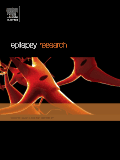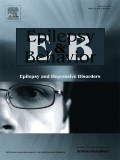
EPILEPSY RESEARCH
Scope & Guideline
Connecting researchers to the forefront of epilepsy science.
Introduction
Aims and Scopes
- Clinical Research and Trials:
The journal publishes studies related to clinical trials and observational studies that evaluate the efficacy and safety of treatments for epilepsy, including new drugs, surgical interventions, and lifestyle modifications. - Neurobiological Mechanisms:
Research focusing on the underlying neurobiological mechanisms of epilepsy is a core area, including studies on neuronal excitability, neurotransmitter systems, and genetic factors. - Psychosocial Aspects:
The journal addresses the psychosocial dimensions of epilepsy, including the impact of stigma, quality of life, and mental health comorbidities in patients with epilepsy. - Innovative Technologies:
A focus on the application of innovative technologies such as machine learning, neuroimaging, and telehealth solutions for better diagnosis, monitoring, and management of epilepsy. - Genetics and Epigenetics:
The journal emphasizes research into the genetic and epigenetic factors influencing epilepsy, including studies on genetic variants and their implications for treatment. - Public Health and Epidemiology:
Research assessing the epidemiology of epilepsy, health service utilization, and barriers to care, highlighting the importance of public health initiatives in managing epilepsy.
Trending and Emerging
- Machine Learning and Artificial Intelligence:
There is a growing trend towards the use of machine learning and artificial intelligence in predicting seizure outcomes, optimizing treatment plans, and enhancing diagnostic accuracy. - Patient-Centric Care:
Research focusing on the patient experience, including quality of life assessments, psychosocial factors, and patient-reported outcomes is increasingly emphasized, reflecting a shift towards more holistic care approaches. - Neurostimulation Techniques:
Emerging studies on various neurostimulation techniques, such as responsive neurostimulation and transcranial magnetic stimulation, are gaining traction as potential therapeutic options for drug-resistant epilepsy. - Genomic and Precision Medicine Approaches:
Research investigating the genetic underpinnings of epilepsy and employing precision medicine approaches to tailor treatments based on individual genetic profiles is on the rise. - Telemedicine and Remote Monitoring:
The COVID-19 pandemic has accelerated interest in telemedicine and remote monitoring solutions for epilepsy care, with an increasing number of studies exploring their efficacy and implementation. - Neuroinflammation and Immune Factors:
There is an increasing focus on the role of neuroinflammation and immune factors in the pathophysiology of epilepsy, leading to research on potential therapeutic targets in these areas.
Declining or Waning
- Traditional Pharmacological Approaches:
There is a noticeable decline in studies focusing solely on traditional antiseizure medications, as the field shifts towards exploring personalized medicine and newer therapeutic modalities. - Basic Animal Models:
Research utilizing basic animal models without translational relevance appears to be decreasing, as there is a growing emphasis on studies that can be directly applied to clinical settings. - Historical and Descriptive Studies:
There has been a reduction in the publication of historical or purely descriptive studies about epilepsy, with a preference for research that offers new insights or interventions. - Epidemiological Studies with Limited Scope:
While public health research remains important, studies that only provide limited epidemiological data without actionable implications for practice are becoming less frequent.
Similar Journals

Advances in Rheumatology
Elevating rheumatology research for a healthier future.Advances in Rheumatology is a premier open-access journal published by BMC, dedicated to advancing the field of rheumatology through high-quality, peer-reviewed research. Launched in 2018, the journal has quickly established itself within the academic community, achieving a commendable Q2 ranking in the category of Rheumatology as of 2023 and ranking #34 out of 73 in the Scopus Medicine Rheumatology listings, placing it in the 54th percentile. With a focus on innovative treatments, patient care, and the latest in rheumatological research, the journal provides a platform for researchers and clinicians to disseminate their findings and foster collaborative advancements in this critical area of medicine. Recognized for its accessibility, the journal follows an open-access model, ensuring that research is freely available to a global audience. With a commitment to high standards of academic rigor, Advances in Rheumatology plays a vital role in enhancing the understanding and treatment of rheumatic diseases, making it an invaluable resource for researchers, professionals, and students alike.

NEUROPSYCHOPHARMACOLOGY
Exploring the Neurobiological Foundations of Psychiatric DisordersNEUROPSYCHOPHARMACOLOGY is a prestigious academic journal dedicated to advancing our understanding of the intricate relationship between psychiatric disorders and pharmacological treatments. Published by SpringerNature in the United Kingdom, this leading journal has been a cornerstone in the field since its inception in 1987, with a converged publication timeline extending to 2024. With a remarkable impact factor and illustrious rankings—being positioned 19th in Psychiatry and Mental Health and 16th in Pharmacology—NEUROPSYCHOPHARMACOLOGY is recognized for its rigorous peer-reviewed research that informs clinical practice and enhances therapeutic interventions. The journal is classified in Q1 quartile categories for both Pharmacology and Psychiatry and Mental Health, highlighting its commitment to excellence. Researchers, professionals, and students are encouraged to contribute to this vital dialogue, as the journal does not currently offer open access, emphasizing the importance of curated, high-quality content. By publishing innovative studies and reviews, NEUROPSYCHOPHARMACOLOGY plays a crucial role in shaping the future of mental health treatments and understanding neurobiological mechanisms, making it an indispensable resource for those at the forefront of psychiatric research.

JAMA Neurology
Advancing Neurological Insights for Tomorrow's TreatmentsJAMA Neurology is a leading peer-reviewed journal published by the American Medical Association, focused on advancing the understanding and treatment of neurological disorders. With an impressive impact factor and ranked in the 99th percentile among clinical neurology journals, this publication is recognized as Q1 in its category for 2023, highlighting its significance in the field. Since its inception, the journal has provided a platform for high-quality research, clinical trials, and reviews that inform both clinicians and researchers. Operating from its headquarters in Chicago, Illinois, JAMA Neurology offers rich insights into the latest advancements in neurology, featuring articles that span a wide range of topics including neurodegenerative diseases, stroke, epilepsy, and neurocritical care. Researchers and professionals are encouraged to access the journal’s content freely, as it employs open access options to promote the dissemination of critical knowledge. As a critical resource in the field of neurology, JAMA Neurology is essential for anyone involved in this dynamic and rapidly evolving specialty.

ANNALS OF THE RHEUMATIC DISEASES
Fostering Excellence in Rheumatology ScholarshipANNALS OF THE RHEUMATIC DISEASES, published by BMJ Publishing Group, stands as a leading academic journal in the realm of rheumatology and related fields, including biochemistry, immunology, and genetics. With an esteemed impact factor and a consistent ranking in the upper echelons of its category (Q1) as per the latest evaluations, this journal represents the forefront of research and innovation, fostering scientific advancement from 1945 to the present. As the top journal in the Medicine - Rheumatology category and achieving remarkable percentiles in various interdisciplinary categories, it serves as a critical platform for researchers, clinicians, and students dedicated to understanding and addressing rheumatic diseases. Although it does not currently offer open access, its rigorous peer-review process ensures the dissemination of high-quality research findings that are paramount in enhancing clinical practices and advancing scientific discourse. Readers can expect to be challenged and inspired by the breadth of studies and reviews that address the complexities of rheumatology and its intersecting scientific domains.

EPILEPSIA
Exploring the frontiers of neurology and epilepsy.EPILEPSIA is a premier academic journal published by Wiley, with a storied history dating back to 1909, making it a cornerstone in the field of epilepsy research and neurology. With an impressive impact factor reflecting its robust contribution to the academic community, EPILEPSIA is categorized in the top quartile (Q1) in both neurology and clinical neurology as of 2023, underscoring its significance and prestige. The journal is ranked #15 out of 192 in Neuroscience & Neurology and #34 out of 400 in Medicine & Neurology (clinical) within Scopus, indicating its essential role in advancing knowledge and treatments related to epilepsy. Researchers and clinicians are encouraged to contribute groundbreaking studies, case reports, and reviews that inform best practices and improve patient outcomes. Although EPILEPSIA currently does not offer open access options, its detailed exploration of both fundamental and clinical aspects of epilepsy ensures wide dissemination of crucial findings among professionals and students alike, furthering the understanding and management of this complex condition.

Schizophrenia Research
Elevating psychiatric research to improve mental health outcomes.Schizophrenia Research is a premier academic journal focused on innovative research within the domain of psychiatry and mental health, published by Elsevier. With its ISSN 0920-9964 and E-ISSN 1573-2509, the journal has established a strong presence since its inception in 1988, evolving to publish cutting-edge findings up to 2024. Positioned in Q1 in Psychiatry and Mental Health and Q2 in Biological Psychiatry, it ranks impressively in the 83rd percentile among its peers, according to Scopus, ranking #93/567 in the field of Medicine, and #12/51 in Neuroscience. This journal serves as a vital platform for the dissemination of significant scientific advancements and theoretical insights into schizophrenia, fostering a deeper understanding of mental illnesses. Although it operates on a subscription basis, its critical role in informing both ongoing research and clinical practices cannot be overstated, making it an essential resource for researchers, clinicians, and students alike. Join a global community dedicated to improving mental health outcomes and advancing the study of schizophrenia through this reputable publication.

Epilepsy Currents
Transforming knowledge into practice for epilepsy management.Epilepsy Currents, published by SAGE Publications Inc, is a vital scholarly journal dedicated to the field of neurology, specifically focusing on epilepsy and seizure-related disorders. With its ISSN 1535-7597 and E-ISSN 1535-7511, the journal aims to disseminate high-quality research, reviews, and clinical insights that contribute to the understanding and management of epilepsy. Boasting a Q3 ranking in clinical neurology for the year 2023, it is positioned among the noteworthy academic resources available to professionals and researchers alike, with its Scopus rank placing it within the 36th percentile of its category. Despite its current non-open access status, the journal remains an essential repository of knowledge for those looking to deepen their expertise in neurology and to stay abreast of the latest developments in the field. Operating out of Thousand Oaks, California, Epilepsy Currents emphasizes evidence-based practices and innovative approaches, encouraging an active dialogue within the academic community and ensuring its ongoing relevance as it converges from 2011 to 2024.

EPILEPSY & BEHAVIOR
Illuminating the complexities of epilepsy and behavior.EPILEPSY & BEHAVIOR is a premier journal dedicated to advancing the field of neurology and behavioral neuroscience, published by Academic Press Inc. Elsevier Science. With a focus on the complex interplay between epilepsy and behavioral disorders, this journal serves as a pivotal platform for researchers, clinicians, and educators alike. The journal holds a commendable position with a Q2 ranking in key categories such as Behavioral Neuroscience and Clinical Neurology, highlighting its influence and contributions to the scientific community. Notably, EPILEPSY & BEHAVIOR is indexed in Scopus, ranking in the top percentiles across various related fields, which underscores the quality and relevance of the research it publishes. As it navigates from its inception in 2000 to its ongoing work into 2024, the journal remains committed to disseminating high-quality research and insights that address critical issues in epilepsy and associated behavioral challenges, providing invaluable resources for ongoing education and innovation in the field.

HEADACHE
Advancing the Science of Headache ManagementHEADACHE is a premier academic journal dedicated to advancing the study of headache disorders through innovative research and clinical insights. Published by WILEY, this influential journal has been serving the neurology community since its inception in 1961 and is recognized as a leader in its field, boasting an impressive Q1 ranking in both Neurology and Neurology (clinical) categories for 2023. With a robust Scopus ranking of #48 in clinical neurology and #26 in neuroscience, HEADACHE consistently publishes high-quality research that contributes to the understanding and treatment of headache disorders worldwide. Although it does not offer open access options, the journal remains accessible to a wide audience through various institutional subscriptions. It aims to provide a platform for researchers, healthcare professionals, and students to exchange ideas and develop new strategies for headache management, making it an essential resource for those dedicated to improving patient outcomes in this challenging area of healthcare.

STROKE
Empowering Neurology and Cardiology Through Cutting-Edge InsightsSTROKE is a premier academic journal published by Lippincott Williams & Wilkins, dedicated to advancing the fields of neurology, cardiology, and specialized nursing. With an impressive impact factor and consistently ranked in the Q1 category across multiple disciplines—such as Advanced and Specialized Nursing, Cardiology, and Neurology—this journal serves as a crucial platform for researchers and healthcare professionals. It spans a rich historical context from 1970 to 2024, offering invaluable insights into stroke research and related cerebral vascular issues. The journal is committed to disseminating high-quality research that informs clinical practices and guides policy-making in public health. With a focus on empirical studies and clinical trials, STROKE stands as an essential resource for those invested in the complexities of neurological interventions and cardiovascular health. Ensure your access to this influential publication as it shapes the future of medical science and patient care.